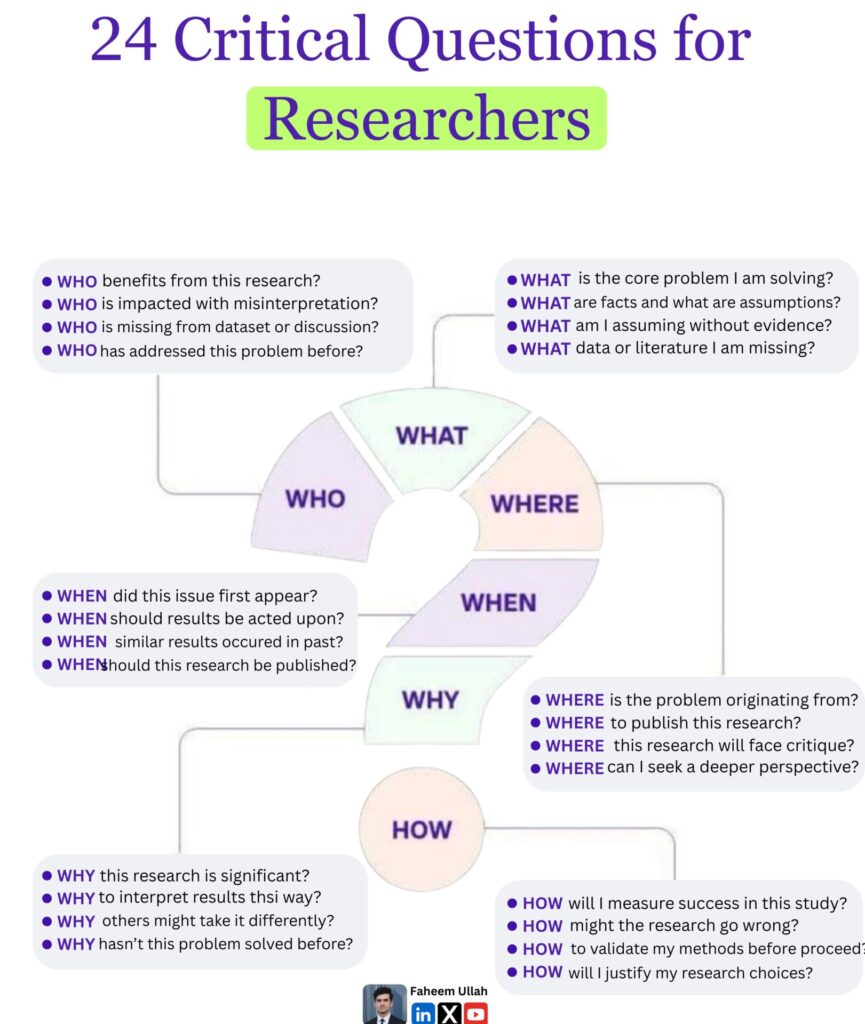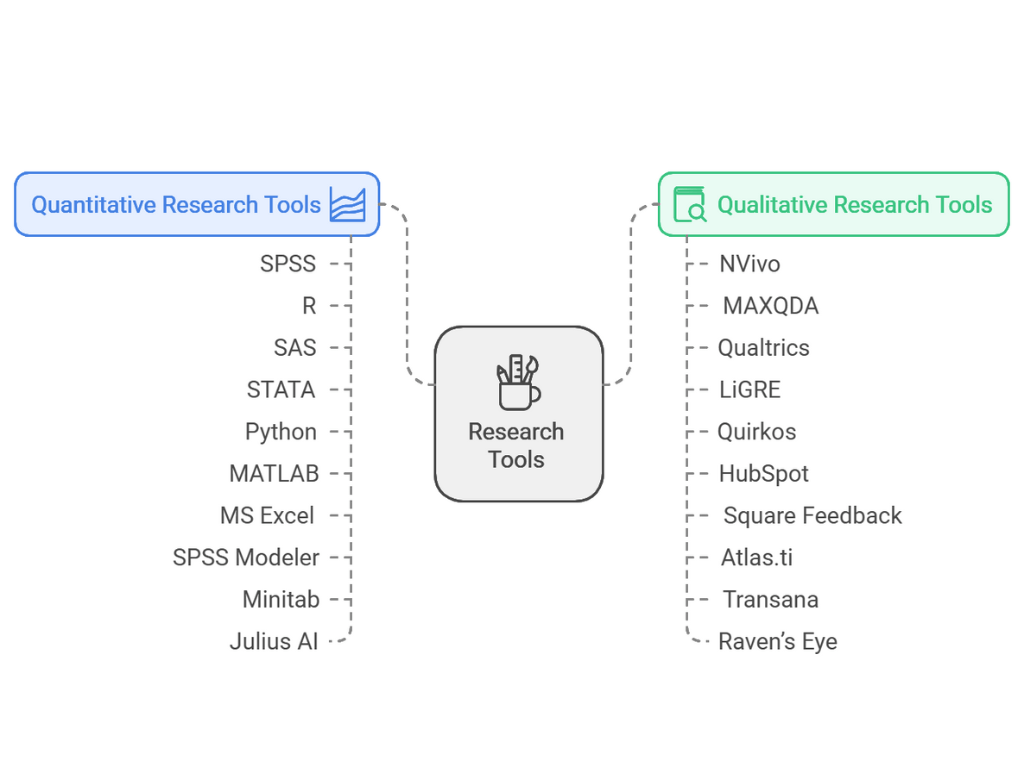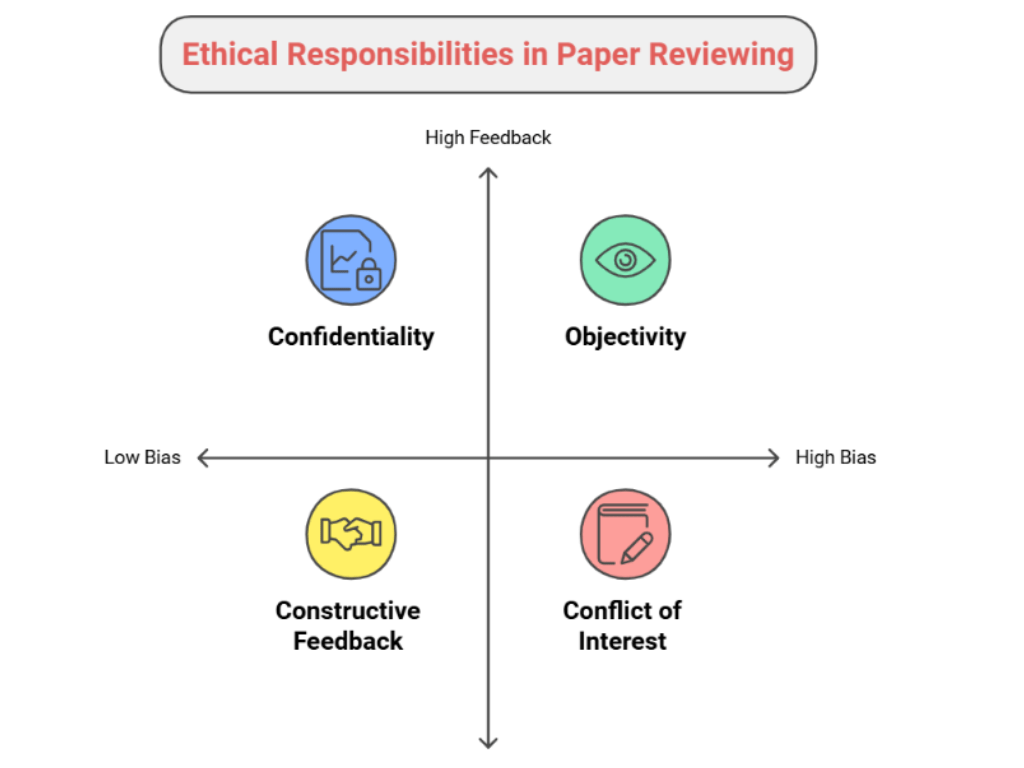
Research is not just about finding answers. It’s about asking the right questions.
In fact, the best researchers don’t just dive into data—they pause and reflect deeply. They question everything: their assumptions, their data, their methods, even their goals. Why? Because good research isn’t just about results—it’s about rigor.
Do you want to analyse your research data in minutes?
Meet DataLumio – A tool for automated data analysis.
DataLumio works in 3 simple steps.
- Upload your data
- Ask your research question(s)
- DataLumio will generate a detailed analysis report
The report contains graphs, charts, and tables, etc.
Try it here – www.datalumio.co
In this newsletter, we’ll walk through 24 simple but powerful questions every researcher should ask themselves—before, during, and after their research journey. These questions are structured around six powerful prompts: Who, What, When, Where, Why, and How.
Let’s explore each in detail

WHO — Understand the People and Context
As a researcher, your work exists in a social and professional ecosystem. “Who” questions help you identify key stakeholders, blind spots, and ethical boundaries.
- Who benefits from this research?
Every research project has beneficiaries. It could be a community, an industry, or even just your academic field. Be clear about who stands to gain from your findings—and how. - Who is impacted if the research is misunderstood?
Misinterpretation is real. If someone takes your findings out of context, who could be harmed or misled? This is crucial in sensitive fields like health, education, or AI. - Who is missing from the dataset or discussion?
Are you excluding voices or perspectives? This might be unintentional, but it affects your validity. Think of gender, geography, socioeconomic background. Inclusion matters. - Who has addressed this problem before?
Research is a conversation. Do your homework. Read widely. Acknowledge past work—even if you’re challenging it. Don’t reinvent the wheel.
WHAT — Clarify Your Focus
- What is the core problem I’m solving?
Nail this down early. If your focus is unclear, your entire paper may lose coherence. Think sharp. Think specific. One problem at a time. - What are facts, and what are assumptions?
Your paper should separate evidence from opinion. Don’t assume things are true because “everyone says so.” Check the data. - What am I assuming without evidence?
Are you relying on intuition or convenience over data? That’s risky. Spot your blind spots before your reviewers do. - What data or literature am I missing?
There’s always a chance you’ve overlooked a key study or ignored a dataset that could strengthen your claim. Keep digging.
WHEN — Think About Timing
“When” questions help you place your research in a meaningful timeline—historically, practically, and strategically.
- When did this issue first appear?
Understand the history of the problem. When and how did it emerge? What’s changed since then? - When should results be acted upon?
Is this research urgent or more long-term? Should policymakers, clinicians, or educators act now or wait for more evidence? - When have similar results occurred in the past?
Are your findings echoes of earlier studies? If yes, compare and contrast. If not, explain what makes them new. - When should this research be published?
Timing matters. Sometimes publishing early helps you lead a trend. Other times, waiting for further data strengthens your case. Know the difference.
WHERE — Explore Context and Impact
Where questions are about space, setting, and impact. They ask you to zoom out and consider the bigger picture.
- Where is the problem originating from?
Geography, community, systems—trace the roots of the issue. For example, is it local, global, structural, or cultural? - Where should I publish this research?
Don’t just publish where it’s easy. Publish where it will be read and cited by the right audience—academics, practitioners, or the public. - Where will this research face critique?
Ask yourself: what will skeptics say? Think ahead. Identify potential objections and address them in your discussion section. - Where can I seek a deeper perspective?
Who could challenge your ideas in a good way? Look for peer review, mentorship, or interdisciplinary feedback. It makes your work stronger.
WHY — Question Purpose and Significance
Why questions make you pause. They help you think about meaning, bias, and perspective.
- Why is this research significant?
Significance isn’t just about novelty. It’s about impact. Does your work solve a problem? Advance a theory? Fill a gap? - Why interpret the results this way?
Could the data mean something else? Are you being too optimistic or biased in interpretation? Be honest and balanced. - Why might others interpret this differently?
Researchers from other disciplines, countries, or paradigms may read your work differently. Be open to that. - Why hasn’t this problem been solved before?
This is a humbling question. Often, problems persist because they’re complex, politically charged, or underfunded. Explore that.
HOW — Plan and Justify Your Process
How questions help you strengthen your methodology and anticipate pitfalls.
- How will I measure success in this study?
Is it citations? Policy impact? A completed experiment? Define your success metrics early. They guide your efforts. - How might the research go wrong?
Every study has risks: low response rates, noisy data, bad sampling. Name the threats and prepare mitigation strategies. - How do I validate my methods before proceeding?
Pilot studies, expert feedback, triangulation—test your approach before you invest months into it. - How will I justify my research choices?
You’ll need to explain your choices to reviewers, funders, or readers. Write defensively. Back every claim with logic or literature.
Final Thoughts:
The best researchers aren’t just good at writing papers. They’re good at thinking deeply.
Before you rush into drafting your manuscript, pause. Reflect on these 24 questions. Use them as a checklist, a compass, a critical lens.
They’ll help you:
- Sharpen your argument
- Avoid weak assumptions
- Strengthen your methodology
- Increase your research impact
Want to improve your paper? Start by improving your questions.
Don’t forget to read: Literature Review Steps





Critical insight and also helpful advice.